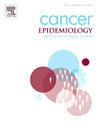在拉丁美洲使用基于人群的癌症登记进行癌症监测和控制
IF 2.3
3区 医学
Q3 ONCOLOGY
引用次数: 0
摘要
基于人群的癌症登记(PBCRs)对于指导癌症控制策略至关重要。在拉丁美洲(LATAM),在扩大pbcr数量方面取得了进展,但它们在癌症控制中的有效使用仍然有限。本研究评估了PBCR数据的当前利用情况,确定了障碍和促进因素,并探索了在整个地区加强PBCR数据在癌症控制中的作用的机会。方法于2023年11月至2024年2月对拉丁美洲81例pbcr进行了横断面电子调查。43个pbcr(53.1 %)做出了回应。调查的问题包括登记操作、数据可用性和传播、研究参与以及参与癌症控制。对开放式回答进行主题分析。结果大多数注册中心为次国家级(93 %),由地方卫生主管部门主办。人员配备有限(65% %≤5名人员),人口覆盖率各不相同。虽然90.7% %的人访问了死亡率数据和个人标识符,但只有70% %的人收集了筛查可检测癌症的分期数据,并且在不到40% %的病例中报告了分期。84.1 %的人共享研究数据,68.1 %的人参与研究,只有39.5 %的人参与预防研究。数据发布经常被推迟,只有44.2% %拥有2018年以后的发病率数据。在过去的五年里,只有不到一半的人发表过数据,与决策者接触或在筛查和姑息治疗项目中使用的情况很少。常见的障碍包括数据源有限、工作人员短缺、医疗记录碎片化以及利益相关者对PBCR职能的认识较低。结论:尽管PBCR在拉美地区的数量有所增加,但其在癌症控制中的应用和整合仍然有限。加强机构支持、改进数据质量和回忆,以及加强与卫生当局和研究人员的合作,对于最大限度地发挥多溴链抗体在整个区域癌症控制中的作用至关重要。本文章由计算机程序翻译,如有差异,请以英文原文为准。
Use of population-based cancer registries for cancer surveillance and control in Latin America
Background
Population-based cancer registries (PBCRs) are essential for guiding cancer control strategies. In Latin America (LATAM), progress has been made in expanding the number of PBCRs, but their effective use in cancer control remains limited. This study assessed the current utilization of PBCR data, identified barriers and facilitators, and explored opportunities to strengthen their role in cancer control across the region.
Methods
A cross-sectional electronic survey was conducted among 81 PBCRs in LATAM between November 2023 and February 2024. Forty-three PBCRs (53.1 %) responded. The survey included questions on registry operations, data availability and dissemination, research participation, and involvement in cancer control. Open-ended responses were analyzed thematically.
Results
Most registries were subnational (93 %) and hosted by local health authorities. Staffing was limited (≤5 staff in 65 %), and population coverage varied. Although 90.7 % accessed mortality data and personal identifiers, only 70 % collected staging data for screen-detectable cancers, and staging was reported in under 40 % of cases. While 84.1 % shared data for research and 68.1 % participated in research, only 39.5 % were involved in prevention studies. Data publication was often delayed, with only 44.2 % having incidence data beyond 2018. Fewer than half had published data in the past five years, and engagement with decision-makers or use in screening and palliative care programs was rare. Common barriers included limited data sources, staff shortages, fragmented medical records, and low stakeholder awareness of PBCR functions.
Conclusions
Despite expanded numbers of PBCR in LATAM, their usage and integration into cancer control remains limited. Strengthening institutional support, improving data quality and recollection, as well as enhancing collaboration with health authorities and researchers are critical for maximizing the impact of PBCRs in cancer control across the region.
求助全文
通过发布文献求助,成功后即可免费获取论文全文。
去求助
来源期刊

Cancer Epidemiology
医学-肿瘤学
CiteScore
4.50
自引率
3.80%
发文量
200
审稿时长
39 days
期刊介绍:
Cancer Epidemiology is dedicated to increasing understanding about cancer causes, prevention and control. The scope of the journal embraces all aspects of cancer epidemiology including:
• Descriptive epidemiology
• Studies of risk factors for disease initiation, development and prognosis
• Screening and early detection
• Prevention and control
• Methodological issues
The journal publishes original research articles (full length and short reports), systematic reviews and meta-analyses, editorials, commentaries and letters to the editor commenting on previously published research.
 求助内容:
求助内容: 应助结果提醒方式:
应助结果提醒方式:


